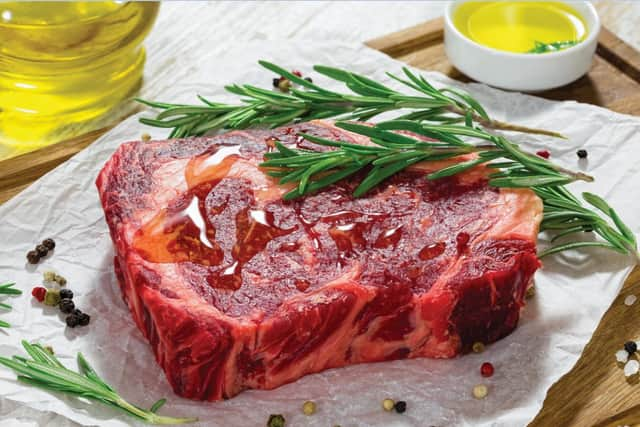Veganuary uplift short lived
and live on Freeview channel 276
According to Food Matters Live, in its tenth year, veganuary has broken all previous records in 2023, marking 706,965 sign-ups from nearly every country in the world. A new YouGov poll found that 71% of British adults have heard of the 31 day vegan pledge and almost 10% have taken part since it launched in 2014.
Contrary to this still less than 1% of the UK population say that they are vegan. Research suggests that the majority of those who are vegan in the UK are London based, young and female with animal welfare and environment as key priorities.
Advertisement
Advertisement
As veganism interest grows those who actually take part is bucking the trend. Sales of plant-based meals fell during January 23, despite the blaze of publicity surrounding the annual anti-meat and dairy campaign.


According to AHDB data, research from IGD suggests 7% of shoppers started taking part in veganuary at the start of January. This uplift in vegan shoppers appeared to be short lived, with seven out of 10 returning to their normal diets by the two-week mark. Of those who stopped, 40% said it was due to alternatives being too expensive, while a further 40% couldn’t find food or drink they enjoyed.
Furthermore, decreased interest meant that in the veganuary period, there was a decrease in alternatives volume sales in both meat and dairy. According to Kantar, the volume sold of dairy alternative products in the first three weeks of January 2023 reduced -2.6%. This was driven by a decrease in penetration, or the number of households buying a dairy alternative product which reduced -3.8%, or 281,000 British households, since veganuary 2022.
According to AHDB ‘growth in demand for milk alternatives has softened over the past 12 months, even moving into a period of volume decline from January to October 2022, although returning to moderate growth (+6.1%) thereafter. Alternatives remain a more expensive option than cow’s milk which is causing some lighter shoppers to turn away, with total dairy alternatives seeing penetration losses of -1.9%pts over the 12 we to 25 Dec 2022. Growth is therefore coming from existing, more committed, shoppers buying more. Value growth for alternative milk has also returned from October but to a lesser extent than cow’s milk, which has experienced significantly higher levels of inflation over the past year.’
Advertisement
Advertisement
In respect to the red meat sector, more than a million fewer households bought meat-free products this January compared to last year with only 13.7% of households buying one (AHDB/Kantar, 3 w/e 22 January 2023). This compares to 96.4% of households buying meat, fish or poultry (MFP) in the first three weeks of the year.
Meat-free remains a small part of the market, maintaining the 2% volume share it has seen over the last four years. This decline in shoppers means overall value and volume for meat-free has declined with volumes down 12.9% and value down 6.3% compared to MFP, which declined by 3.2% in volume but saw value growth of 8.3% due to price increases. During this period, only 13.7% of households bought meat-free products, while 96.4% of households purchased meat, fish or poultry products.
It is likely that veganuary impacted the sales of vegan own-brand products in January, says Kantar.
Fraser McKevitt, Head of Retail and Consumer Insight at Kantar explained: “Growth was largely driven by existing shoppers of the category rather than new converts, with 3.4 million consumers making a purchase this January which is slightly down on last year.
Advertisement
Advertisement
“Alongside the pull factor of events like veganuary, the push element of new regulations on food and drink which is high in sugar, salt and fat could also be having an impact.”
Dry January has also seen a boost in no and low alcohol beer volumes which were 3% higher than last year. January is a time when shoppers try to eat healthily in general, not exclusively reduce meat. Therefore, there is an opportunity to promote healthy meat options, highlighting those high in vitamins and minerals as well as lean cuts.